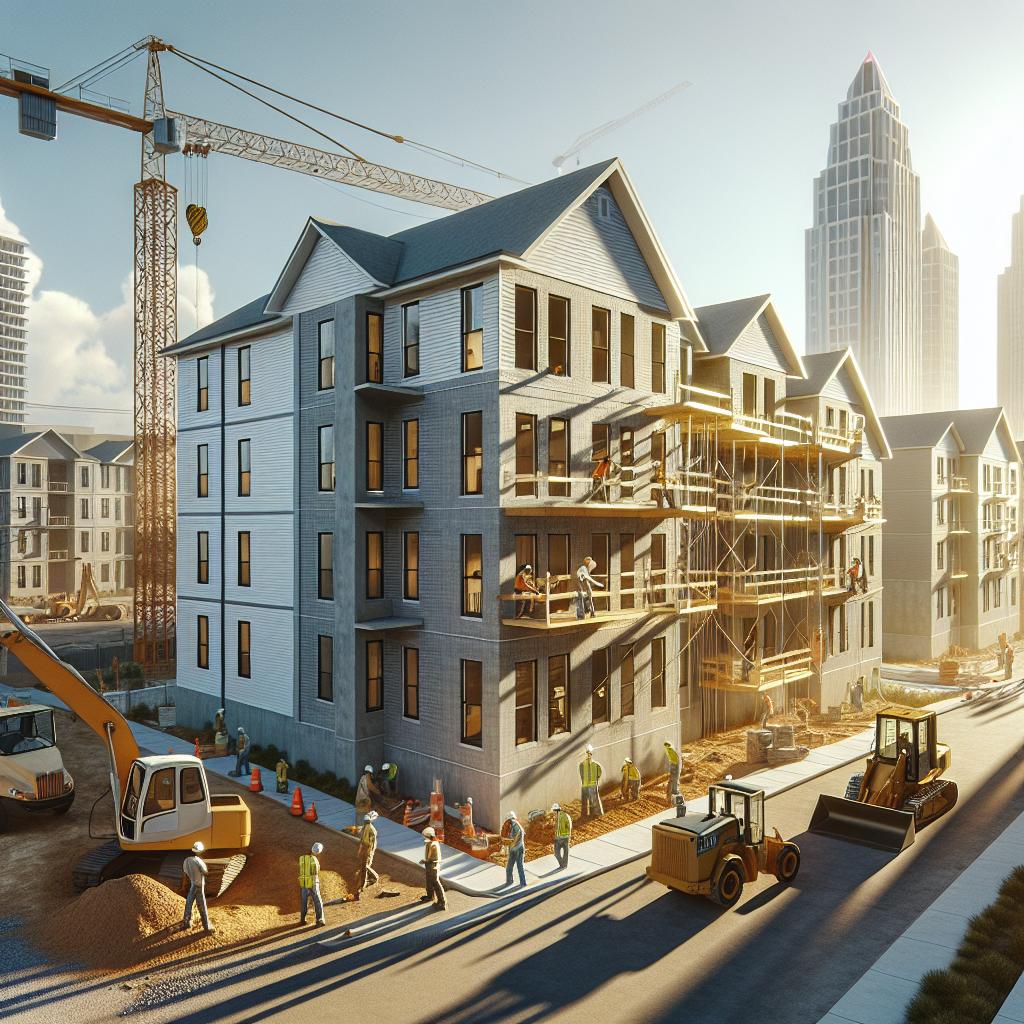Memphis Fights Rising Costs to Maintain Affordable Housing Efforts
As the need for affordable housing in Memphis continues to grow, local developers and city officials grapple with soaring costs that limit the availability of new homes for those in desperate need of shelter. Despite the increasing challenges, the determination to achieve housing affordability remains strong in the community.
The Calm Before the Storm
In 2018, Pastor Clifford Causey, inspired by the housing needs of his congregants, decided to construct an affordable housing project on an 8-acre property he received as a donation. He teamed up with a California-based firm in 2021, unaware of the complexity of the task that lay ahead.
Back then, developing affordable housing posed its fair share of difficulties, but the challenges intensified post-2020. The costs of borrowing money and procuring labor and construction materials skyrocketed. As a result, several firms with a wealth of expertise had to downsize their projects and devise fresh strategies to navigate the increasingly turbulent landscape.
Affordable Housing in Crisis
Even as wages increased and rental rates remained the same after a sharp hike in 2020 and 2021, Memphis is still short of around 44,000 rentals for citizens with “extremely low income,” per city estimates based on HUD data. Seniors and individuals living with disabilities are particularly at risk in the current housing market as few opportunities exist for income augmentation and the required accommodation features are largely unavailable.
The Trials of Building Affordable Housing
Widely acknowledged is the fact that constructing affordable housing lacks profitability, a situation that disincentives many investors. Similar construction costs but significantly differing rental rates between luxury and affordable housing complexes make the latter option unattractive from a financial perspective.
The Valley of Funding Shortfall
Despite government subsidies available at various levels, rising development costs mean these programs can no longer bridge the growing financial gap. The effects of the pandemic led to a more than 35% increase in hard costs associated with building apartments, and a doubling of interest rates, culminating in a severe limitation in the number of quality, affordable apartments in Memphis.
Facing the Challenge
Tennessean agencies are stepping up with innovative strategies to give affordable housing projects a much-needed push, including offering supplementary bonds and allowing developers to trim down their plans. However, local opinion holds that these measures, although necessary, are not sufficient.
Local Initiatives for Boosting Affordable Housing
Increased funding for Memphis’ Affordable Housing Trust Fund is deemed crucial for encouraging affordable housing development. Action on lowering development fees, developing a low-cost loan program, and zoning more property for multifamily housing would also be steps in the right direction.
A Ray of Hope on the Horizon
The potential passage of the federal Affordable Housing Credit Improvement Act, which proposes a 50% increase in the largest federal subsidy for low-income housing, offers a glimmer of hope. Although it is uncertain when the Act will be approved, local developers anxiously await its potential to significantly bolster their projects.
A Dream Turned into Reality?
Citizens like Tanjular Perry, a 61-year-old resident of northern Memphis, wait eagerly to see whether these initiatives will bear fruit. Living off her SNAP benefits at a run-down complex, Perry is hopeful she can get into one of the affordable units planned by Causey’s project and finally find a safe and comfortable place to call home.
The battle to secure affordable housing in Memphis is far from over, with rising costs presenting a continuous battle. However, the determination and collaborative efforts of local developers and city officials give a beacon of hope for those in search of safe, affordable homes.







